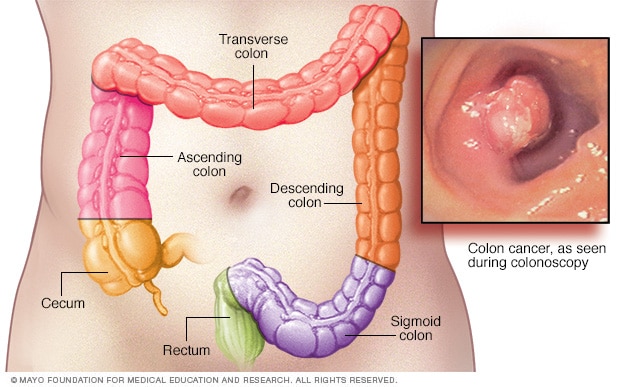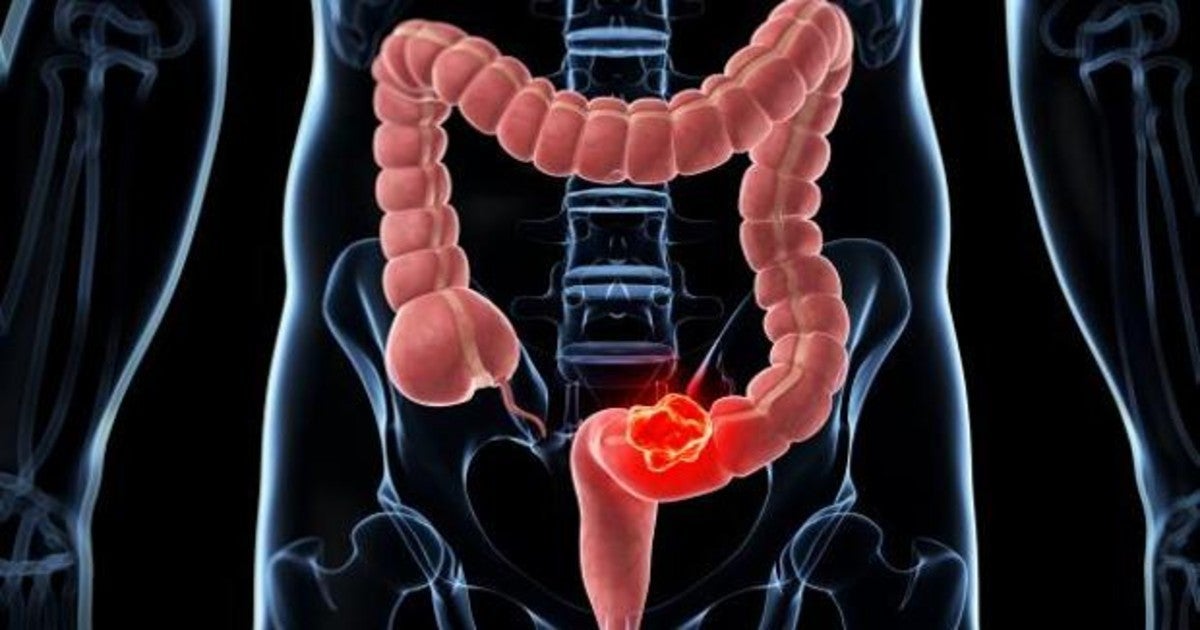Explore the links on this page to learn more about colorectal cancer prevention screening treatment statistics research clinical trials and more. Colorectal cancer is a malignant tumor arising from the inner wall of the large intestine colon or rectum.
The rectum is at the end of the colon.

Cancer de colon. We are what we eatDietitian. Cuando el tumor maligno se encuentra situado en el colon o en el recto hablamos de cáncer colorrectal. Colorectal cancer CRC is the second most common cause of cancer death in the United States.
É tratável e curável na maioria dos casos detectado precocemente. La mayoría de los cánceres colorrectales comienzan como un crecimiento en el revestimiento interno del. Esto incluye pólipos precancerosos colitis ulcerativa enfermedad de Crohn y síndromes hereditarios como poliposis adenomatosa familiar PAF o cáncer de colon hereditario sin poliposis HNPCC en inglés también conocido como síndrome de Lynch.
Cancerul de colon se dezvoltă la nivelul celulelor care căptuşesc colonul şi apare când celulele de la acest nivel sănătoase în mod obişnuit încep să se dezvolte necontrolat formând tumori. Cancer de colon Tipuri de cancer. Finding and removing polyps can prevent colorectal cancer.
In this article learn about the signs and symptoms stages and treatments including surgery. El cáncer colorrectal es un crecimiento incontrolado de las células del colon yo del recto. Cancer de colon 1.
Tener otros problemas de colon puede aumentar su riesgo de cáncer colorrectal. Both of these organs are in the lower portion of your digestive system. La mayoría de los cánceres colorrectales aparecen sobre un pólipo existente años antes en la mucosa del colon o del recto que con el paso del tiempo y debido a la acción de distintos.
Cel mai frecvent tip de cancer de colon incepe de la adenocarcinoame. Conform American Cancer Society adenocarcinoamele constituie 96 din toate cazurile de cancer de colon. Or you can choose another section to learn more about a specific question you have.
How to take care of your Colon health. Colorectal cancer is the third leading cause of. Adenocarcinoamele se formeaza in celulele mucusului fie in colon fie in rect.
Cancerul de colon cel mai adesea se dezvoltă din polipi formaţiuni necanceroase care se pot dezvolta în. Mai putin frecvent cancerul colorectal este cauzat de alte tipuri de tumori cum ar fi. Whether you or a loved one are worried about getting colorectal cancer have just been diagnosed are going through colorectal cancer treatment or are trying to stay well after treatment this detailed information can help you find the answers you need.
The most deathly disease shared among men and women-Colon cancer. Colorectal cancer often begins as a growth called a polyp inside the colon or rectum. Use the menu below to choose the Introduction section to get started.
O câncer de cólon também chamado de câncer do intestino grosso ou câncer colorretal quando afeta o reto que é parte final do cólon acontece quando as células dos pólipos na parte interior do cólon começam a se multiplicar de uma forma diferente uma das outras dobrando de tamanho e se inflamando causando sintomas como prisão de ventre dores abdominais e sangue nas fezes nos. O câncer de cólon abrange tumores que acometem um segmento do intestino grosso o cólon e o reto sendo um dos tipos de câncer mais incidentes no mundo. Every 3 years the American Cancer Society provides an update of CRC occurrence based on incidence data available through 2016 from populationbased cancer registries and mortality data through 2017 from the National Center for Health Statistics.
Colorectal cancer is a cancer that starts in the colon large intestine or rectum. Colon cancer is the third most common cause of cancer-related death in the United States. This is CancerNets Guide to Colorectal Cancer.

/colon-cancer-causes-5b2bc34143a1030036957405.png)





